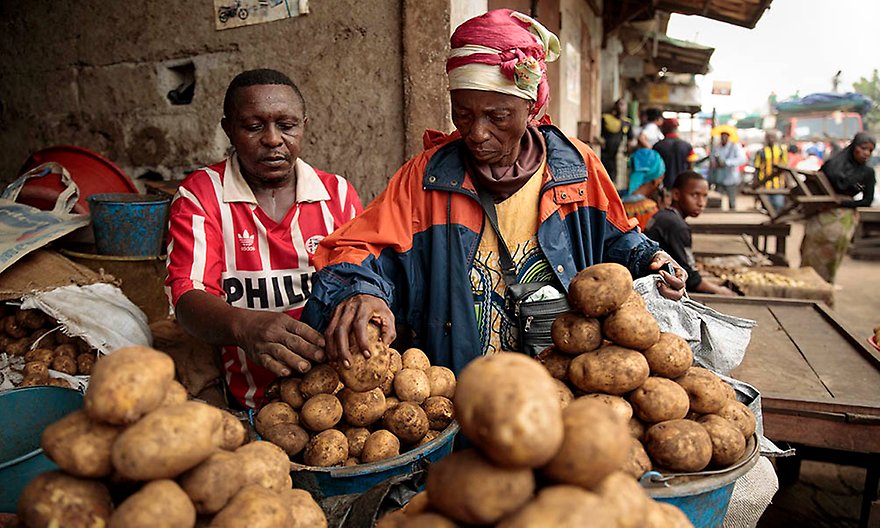Rapid urbanisation threatens food security in Africa

Douala, Cameroon, December 2018. Market woman Christine Banlog, chooses potatoes from a whole-sale market. Locally, the market women are called “Bayem-Sellam”. Photo Ryan Brown, UN Women.
With an average annual urbanisation rate of more than three per cent in Africa, research on sustainable urban food systems and increased agricultural productivity
will be key to mitigate hunger and malnutrition.
FACTS: Africa’s rapid urbanisation
Africa is the fastest urbanising region in the world.The continent’s population is estimated to double before 2050. Two-thirds of this growth will be absorbed by urban areas.
Source: OECD (2020).
If people in rural areas move to cities or use their farmland for purposes other than agriculture, the current pace of urbanisation in Africa threatens to decrease food supply. At the same time, demand for food in cities will grow. This will increase pressure on food systems in African countries that will have to rely much more on international food markets. Many of them are already big net importers of food.
“It will leave countries vulnerable to supply and price shocks like, for instance, the Covid-19 pandemic and the war in Ukraine”, says NAI researcher and development economist Assem Abu Hatab.
Moreover, a growing urban population tends to change consumption habits, eating more animal-source foods and processed food from supermarkets. This will increase the environmental footprint of African food systems.
Increased urban food waste is another critical outcome of rapid urbanisation in Africa, adding to the existing problem of food being lost before it reaches consumers due to weak storage and transport systems.
“Building resilient food systems that promote sustainable methods of food production is crucial. It entails urban planning to consider food security and agricultural research looking into increasing productivity”, Abu Hatab concludes.
